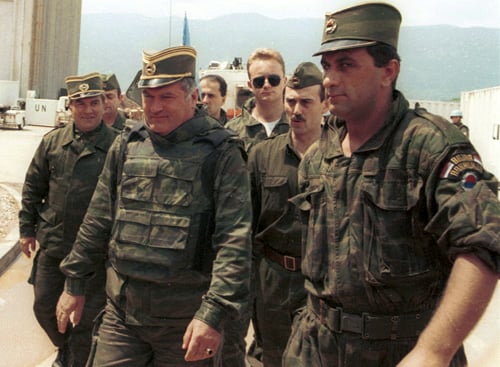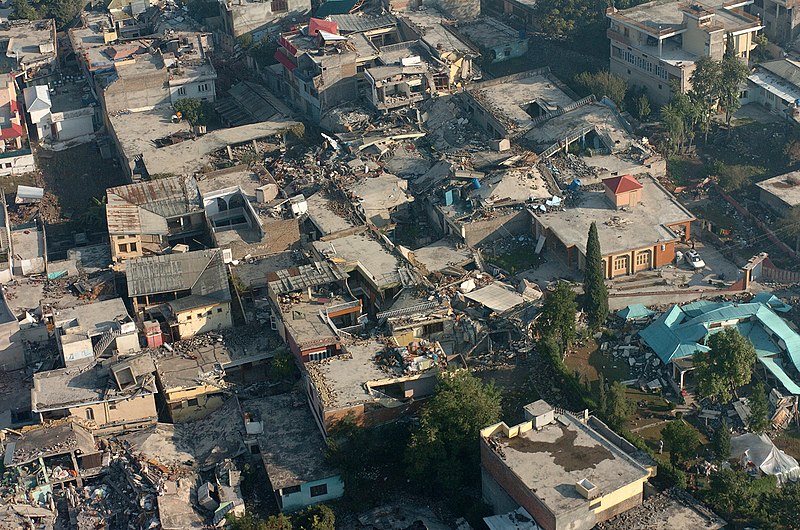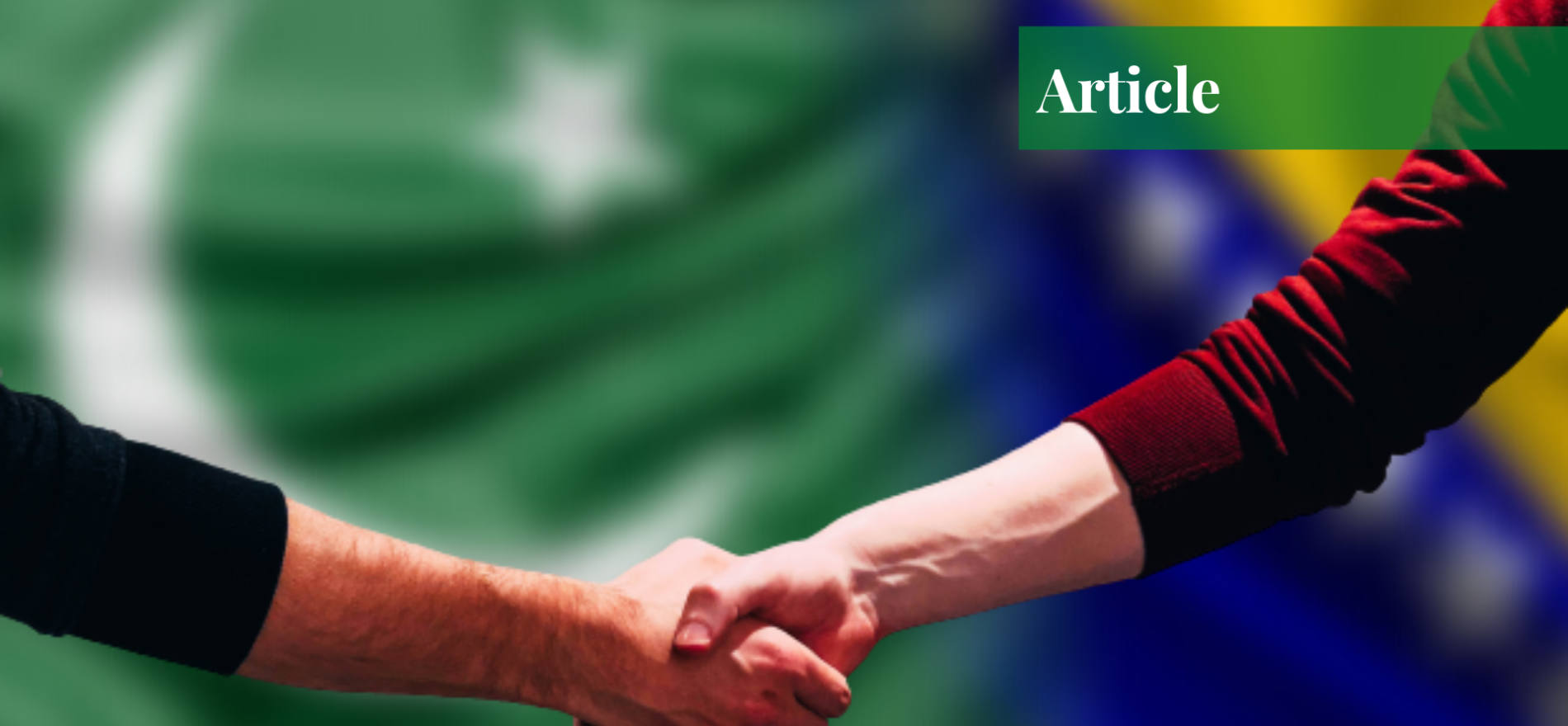Adeel Yousaf has a bachelor's degree in international relations from Quaid-i-Azam University. He has a keen interest in the geopolitics of the world and current affairs.
Pakistan enjoys idyllic diplomatic relations with a few nations such as Turkey, Bosnia, and China. The Bosnia-Pakistan diplomatic relations can be traced back to the independence of the Republic of Bosnia and Herzegovina from the Socialist Federal Republic of Yugoslavia in 1992. These diplomatic relations share a political and religious basis. The two countries have a free trade network. Pakistan supplied weapons to Bosnia and Herzegovina and the latter returned the favor by donating a large amount of money for those affected in the earthquake of 2005 in Azad Jammu and Kashmir. The two countries have stood by each other in challenging times.
The Civil War in Bosnia and the Role of Pakistan
After World War II, the modern Balkan states demanded separation. Separatists longed for freedom from Yugoslavia. As Serbia had the advantage of majority power, it was against the separatist agenda. Like the other states, when Bosnia demanded freedom in 1992, Serbia sent the army over to Bosnia. The propaganda was not just opposing the call of independence but another rather horrific and inhumane agenda, ethnic cleansing.
The Yugoslavian army, comprising mostly of Serbs, attacked many of the Bosnian populations such as Zvornik, Foča, and Višegrad. Slobodan Milosevic was the central figure for sending out tanks to the villages of Bosnia, igniting a spark that ended with a civil war in Bosnia, killing about 100,000 people and having more than 2,000,000 people displaced. Another one of the key people in the civil war in Bosnia was Ratko Mladic, more commonly “The Butcher of Bosnia”. He assisted the army in carrying out the savage attacks.

The war had a number of brutal outcomes such as the mass rape of Bosnian women by the Army of Republika Srpska and the Srebrenica massacre. The Srebrenica massacre, also called the Bosnian genocide, is one of the most brutal ethnic cleansing massacres in history. Separating the men and children of Srebrenica from their families and throwing their bodies in marshes after brutally murdering about 10,000 Muslims led to protests all over the world. Bosnia was suffering.
Help from the Government of Pakistan
The United Nations had imposed an arms embargo in Bosnia. The fascist Serbs took advantage of this and brutally murdered the innocent Bosnians. The president of Pakistan at that time, Sardar Farooq Ahmad Khan Leghari, said, “The Western policy of appeasement of the Serbian aggressors is not going to pay.” Pakistan decided to provide Bosnia weapons in spite of the embargo imposed by the UN. Anti-tank missiles were provided to the Bosnian government so it could fight off the Serbs which eventually capsized the civil war in the favor of Bosnia.
On the orders of the president to the Foreign Ministry of Pakistan, PIA (Pakistan International Airline) airlifted Bosnian refugees into Pakistan, safely to the Bosnian village made specifically for them. The role of Abdul Sattar Edhi cannot be ignored as he raised about 1 million PKR in one day to help the Bosnian refugees.
A wartime loan of 20 million USD was given to Bosnia, later converted into a “gift” from Pakistan. Prime Minister Benazir Bhutto, along with then Turkish premierTansu Ciller, visited the Bosnian capital to help those in need and to bring the attention of the west to the suffering of the Bosnians, who, apparently had been blind to the manslaughter taking place in Bosnia and Herzegovina.
Help from Pakistan Army to the Bosnians
PAK-BATS (Pakistan Battalion) struggled for 34 hours and set up a camp for 50,000+ Bosnians in the war-ravaged state. Pakistan had the largest number of human resources provided to Bosnia and the largest number of human lives lost in the mission. The engineers of the Pakistan Army eliminated land mines, which ultimately opened the roads to the locations that the Serbian army had declared as no-man zones.
The ISI and the Civil War in Bosnia
The Inter-Services Intelligence (ISI), under the supervision of General Javed Nasir, ran a military intelligence program. The ISI provided a systematic supply of arms to the Army of the Republic of Bosnia and Herzegovina.
The overall help from Pakistan to Bosnia and Herzegovina was indeed one of the most important factors in helping the Bosnians fight the Serbs. As a result of this assistance in the form of weapons, military personnel, and refuge, the idea of federalization and centralization of Yugoslavia by the Serbian nationalists went up in ashes.
The Earthquake of 2005
A disastrous earthquake of 7.6 magnitude struck Kashmir, as well as some parts of Pakistan, India, and Afghanistan. An estimated 80,000 people died and about 4 million people had their residencies destroyed and were left homeless.

The Ambassador of Bosnia and Herzegovina, Damir Dzanko, stated that Bosnia and Herzegovina will provide every kind of support to the earthquake-affected because of the strong brotherhood ties created by the unprecedented help of the Bosnian people in the civil war in Bosnia by the Pakistanis. Bosnian schoolchildren donated a large amount of money as a fund for a school and a healthcare center in Azad Jammu and Kashmir.
Educational Cooperation
Nawaz Sharif, the former prime minister of Pakistan, visited Bosnia in 2016 and signed a Visa Abolition Agreement. In addition, meetings were scheduled for negotiations on a Preferential Trade Agreement, Joint Economic Commission, and Joint Trade Committee. The importance of enhancing cooperation in several areas such as terrorism, anti-narcotics, culture, and education was highlighted.
Defense Cooperation
The Chairman of Presidency of Bosnia and Herzegovina, Sefik Dzaferovic, visited Islamabad and had a meeting with Pakistan’s Chief of Army Staff, General Qamar Javed Bajwa, in which matters of mutual interest were discussed between the two. In addition, improved Bosnia-Pakistan bilateral relations and cooperation were taken into consideration regarding the matters of defense.
Army chief General Qamar Javed Bajwa focused on the brotherly Bosnia-Pakistan relations and showed hope that the bilateral relations be improved in the future. An agreement was signed between the two countries, in order to limit illegal immigration so that the existing relations could be further improved.
Trade Relations and MOU
Chairman of Presidency of Bosnia and Herzegovina Sefik Dzaferovic met with Prime Minister Imran Khan and emphasized the potential for increased bilateral cooperation in several areas such as science, trade, energy, defense, and education. The improvement of trade relations could significantly enhance the overall relations between the two countries.
In the same meeting between Dzaferovic and Imran Khan, a memorandum of understanding (MOU) was signed. In the MOU, it was stated that in order to return the illegal immigrants from Pakistan residing in Bosnia and Herzegovina, an efficient protocol will be followed.
Conclusion
Bosnia-Pakistan relations have a well-built foundation and both countries have signed multiple agreements regarding science, technology, anti-terrorism, against organized crime, culture, and education. The two countries have a strong brotherhood, leaving a lot of potential for even improved bilateral cooperation.
Bosnia is one of the countries that Pakistan has historical connections with, mainly because of the help of the Pakistani government and Pakistani people in the civil war in Bosnia. Recent reforms have also taken place regarding many agreements to improve the Bosnia-Pakistan relations, considering that both of the countries are always thriving for better connections.
However, there are a number of areas that we can improve our cooperation in, such as progressing tourism, increasing trade, and putting an end to illegal immigration from Pakistan to Bosnia, which can solidify our bilateral connections and introduce new perspectives of mutual cooperation.
If you want to submit your articles and/or research papers, please check the Submissions page.
The views and opinions expressed in this article/paper are the author’s own and do not necessarily reflect the editorial position of Paradigm Shift.


















